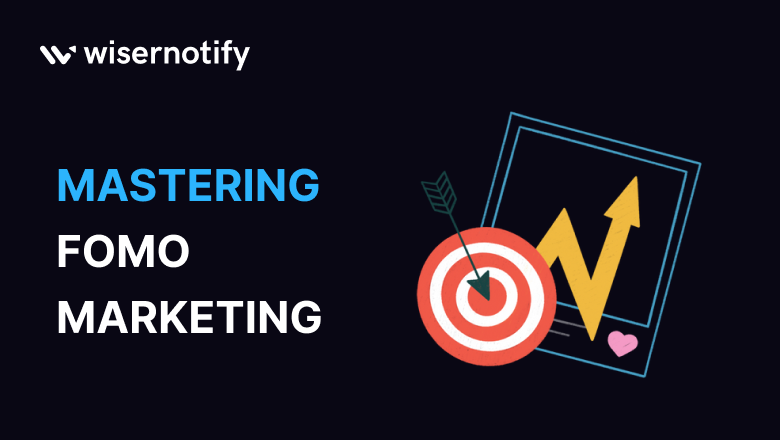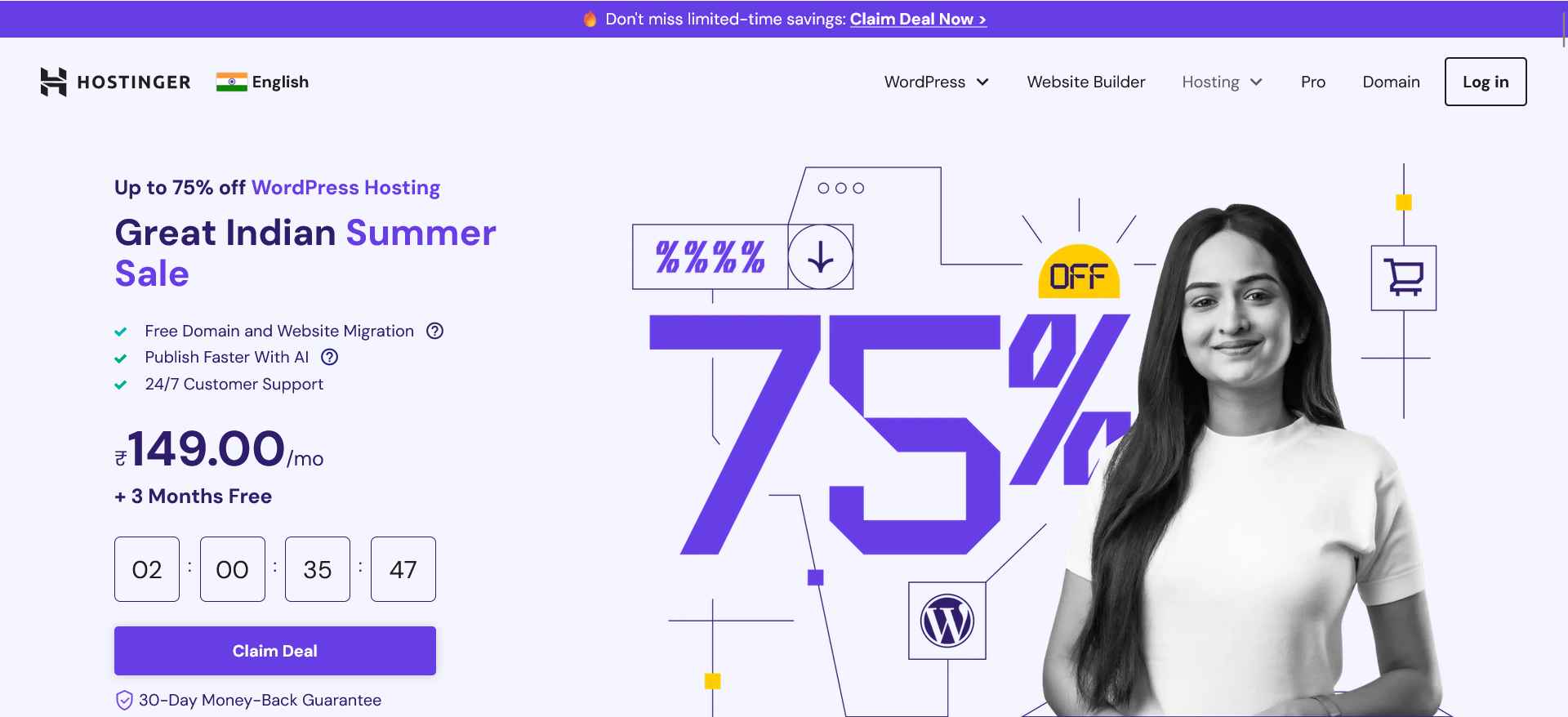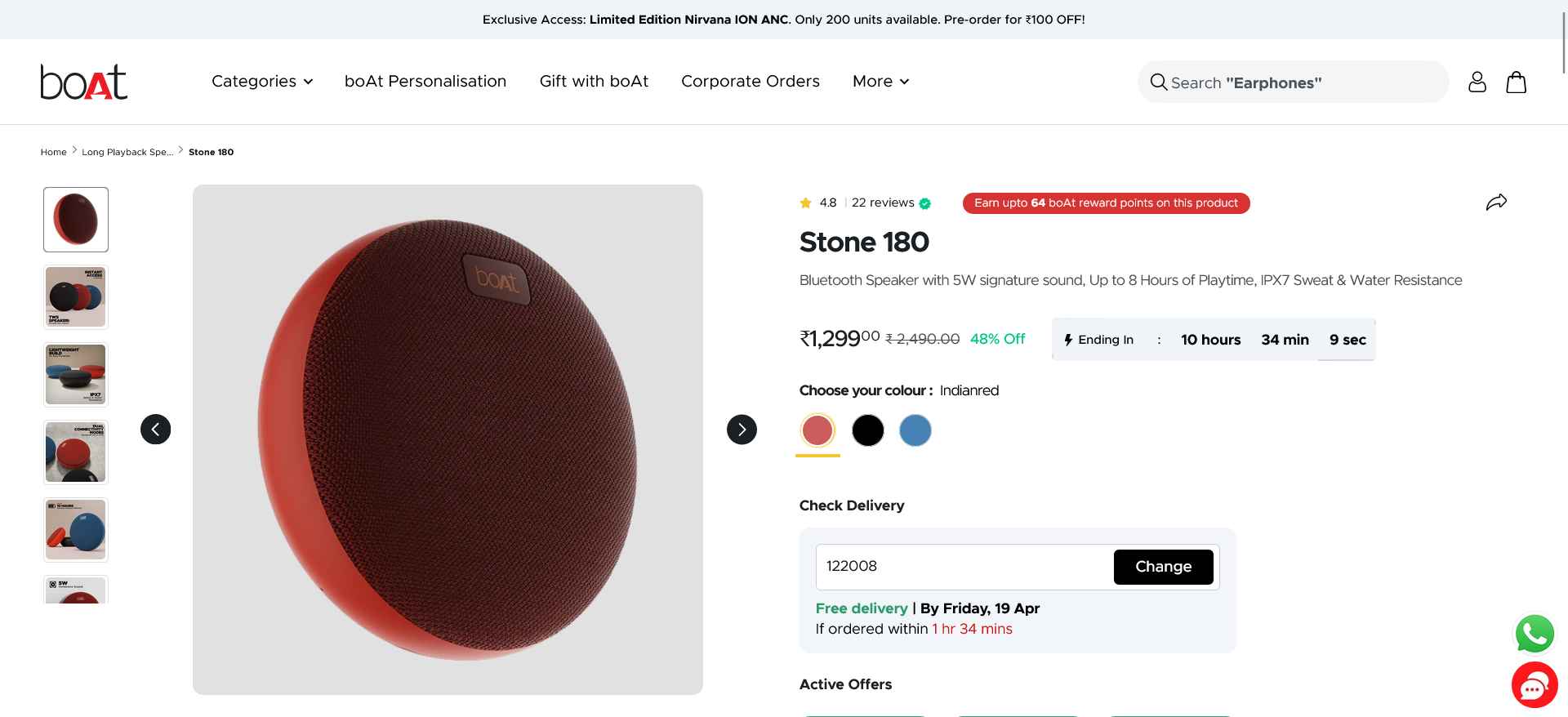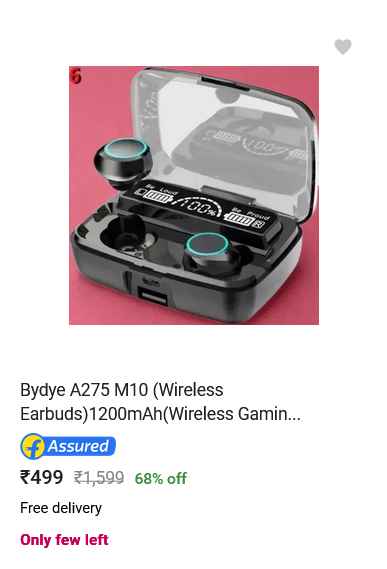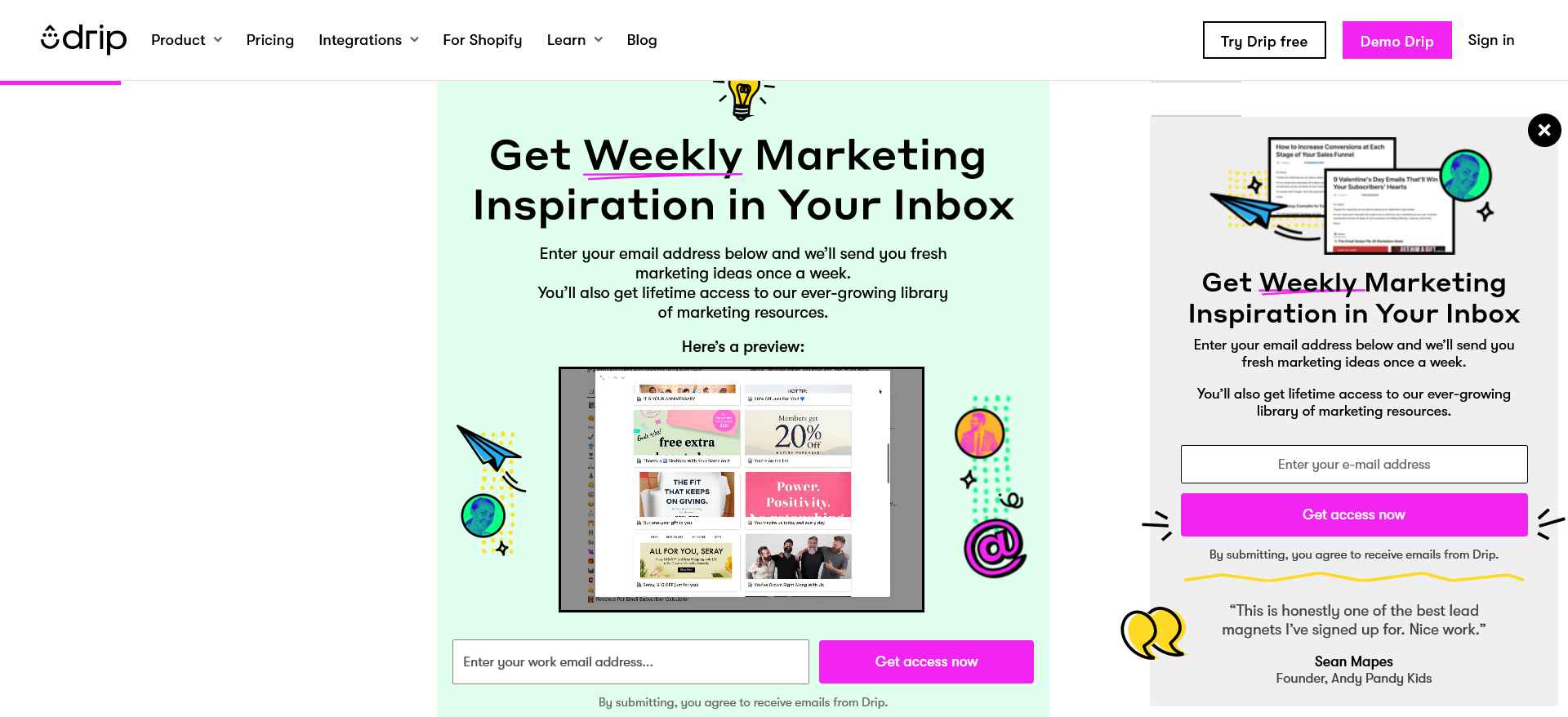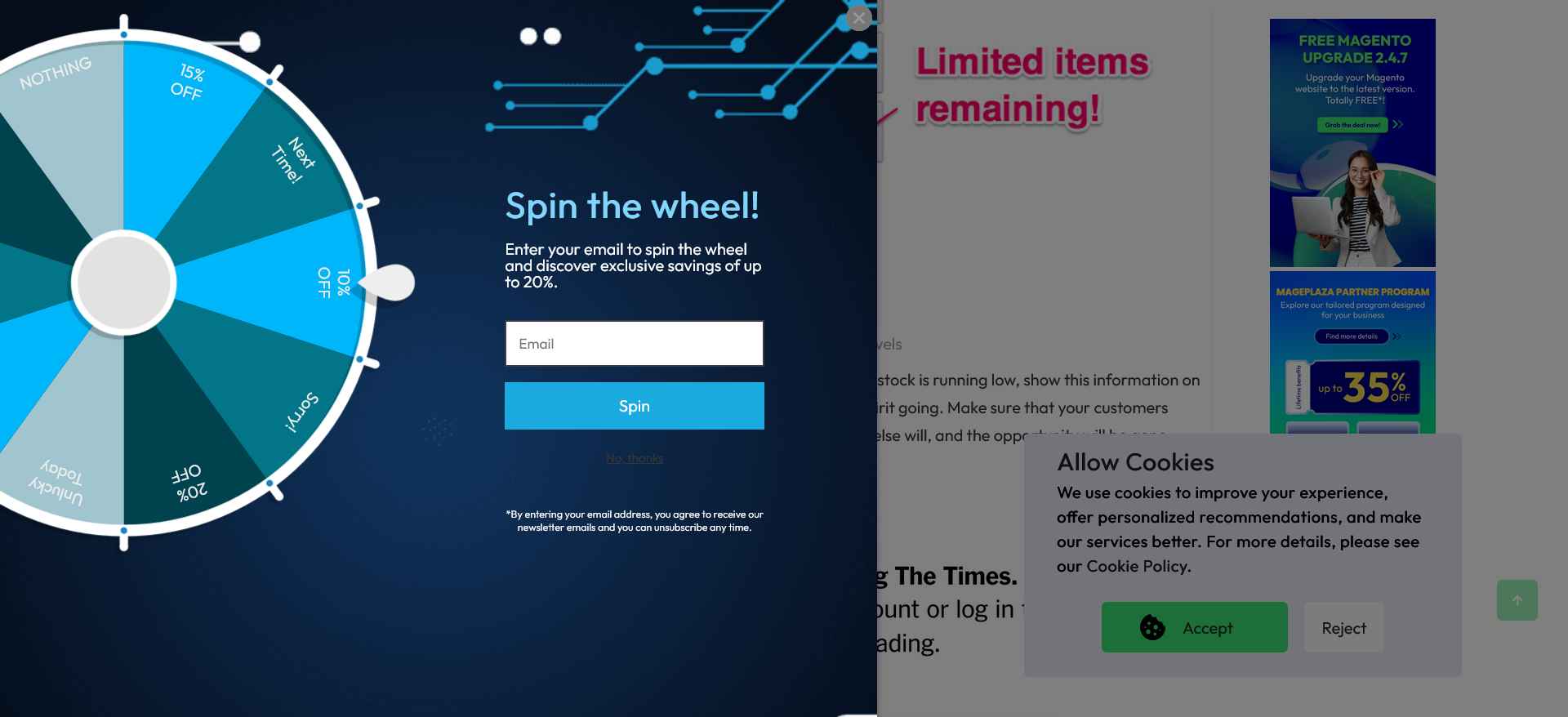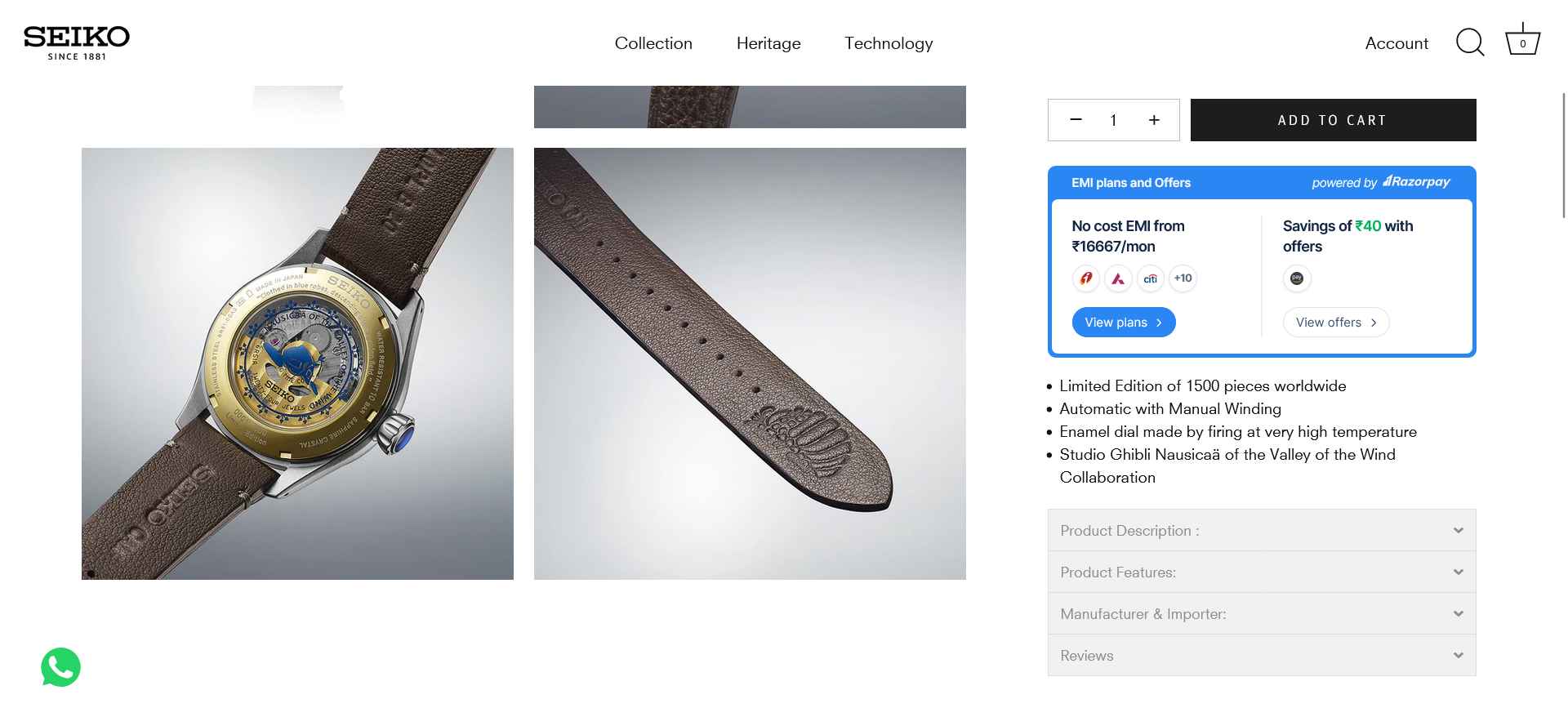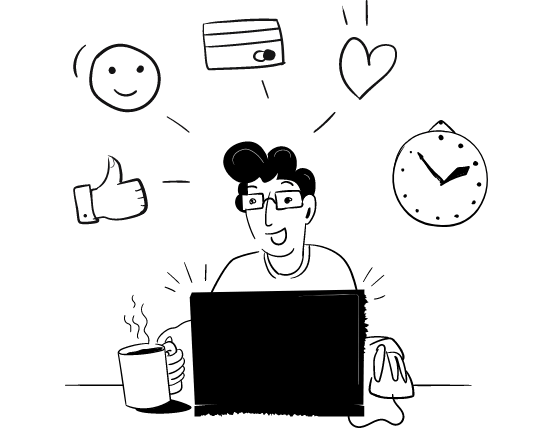Capturing the audience’s attention is half the battle of your marketing strategy. But how can you convert them into customers and drive more sales and revenue for your business?
It’s called FOMO marketing – a Fear of Missing out.
FOMO marketing capitalizes on psychological phenomena that evoke emotions, compelling your audience to take action.
FOMO gives a sense of urgency and motivates potential customers to take quick action.
As FOMO marketing taps to evoke emotions, you can influence customers to engage, click, and invest.
Fear creates a sense of anxiety and can drive customers to take action immediately based on the fear of missing out on something valuable or desirable.
Many businesses use FOMO tactics every day. Emails, content marketing, and social media marketing with titles like “Limited edition products,” “Only a Few Seats Left,” “Best Selling,” or “Deal Ends Soon” in the subject line can trigger that emotion.
They give consumers a sense of urgency and make them take immediate action, or they’ll miss out on something valuable.
In this article, we’ll focus on different FOMO marketing strategies, examples, and tools and bringing success for the FOMO marketing campaigns.
Let’s dive in.
The Psychology Behind FOMO Marketing
Ever feel like you are missing out? People fear regretting missing those opportunities for something valuable or in limited supply.
This triggers FOMO, creates a sense of exclusivity that they have access to something that others might not have, and makes them act immediately.
Here are different FOMO Marketing Strategies to use in your next marketing campaigns –
FOMO Marketing Strategies
FOMO, or Fear of Missing Out, appeals to every consumer to latch on to every opportunity before missing it or it slips through their fingers. It puts your consumer’s mind into overdrive as they start thinking, “What if” they miss the offer?
FOMO is often triggered by seeing posts that offer a discount, time-limited purchases, End of season sales, and many more that make your customer decide before the chance is missed.
Why use FOMO in your Marketing Strategy?
Let’s say you want a mobile phone and have already decided on the brand and model you will purchase.
And while on the way home from work, you notice a local mobile shop is offering 35% off on the exact mobile you want to buy, but due to financial constraints, you are still contemplating the decision and have not made up your mind!
However, when you see that discount, would you not feel the urge to purchase before the deal ends?
That’s precisely the sense of urgency the FOMO marketing strategy creates for your customers. You won’t believe it, but 60% of millennials make a reactive purchase after experiencing FOMO (within 24 hours).
When done right, FOMO creates overdrive in customers’ minds, and people act by purchasing or subscribing to your channels.
But make sure your FOMO offer is believable by ensuring you keep the promise. If you promise, make sure it is, or it will break your customer’s trust if a similar offer rolls over every weekend or week.
Remember, do not overuse FOMO; limiting the use is best.
Now, let’s look into some FOMO techniques used in marketing today.
Let’s talk about some best FOMO marketing strategies to improve your sales –
1. Limited-time offers FOMO Marketing
By offering limited-time offers such as discounts, promotions, or deals, you can create a sense of urgency to encourage potential customers to make immediate decisions and trigger impulse purchases.
By putting an end date or time on a particular deal, emphasize that the offer won’t last for longer. This creates FOMO, pushing customers to take action.
Learn from Hostinger: it influences customers to take immediate action and miss out on the limited-time Great Indian Summer Sale offer of two days.
2. Flash Sales
Flash sales are unexpected and time-sensitive offers with substantial discounts or unique offers for only a short period. These offers are less frequent and usually occur for special events or goals.
Here’s a FOMO marketing strategy from Boat: they use an end time on the pricing of the product to influence customers to grab the best deal before the timer runs out.
3. Limited Stock Alerts
Time-bound deals are another great way to create FOMO among customers. People would feel like there were only a few times left to make a purchase and grab that particular deal.
For example, if you want to purchase hosting for your website, you visit the hosting site, and the time limit appears, showing you make a purchase within five minutes and grab a 30% discount.
Now, you have two options: make a purchase and grab that 30%, or keep visiting other hosting sites and lose the offer. Would you make a purchase or not?
This countdown time offer works best for selling digital products or services.
Learn from Flipkart, showcasing that only a few are left to make sure the buyer takes quick action before the product is out of stock.
4. Exclusive Access
Another common FOMO technique is using an Exclusive Deal, which makes your customer think, “What if they missed this good deal?”
For example, many times when you visit the website, companies ask you to sign up for member-only promotions. It shows, “Sign-up to receive discount offers, new promotions, and exclusive deals only for sign-up members.”
Not only do subscribers get an offer on signing up, but also lifetime value in terms of the member’s only access to those exclusive deals and offers.
Learn from Drip: asking visitors to subscribe to the Newsletter creates a sense of exclusivity by offering them lifetime access to their marketing resources and exclusive content, such as fresh marketing ideas every week.
5. Social Proof Strategy
Social Proof & FOMO is a way to use other people’s experiences to showcase the value of your product or service that helped them. Most of the time, people get influenced based on the reviews and experiences of other people.
For example, when you purchase any hair product, you first check the reviews on different sites. Check out reviews and what people from influencers to your friends to colleagues and neighbors, especially when the price of your product is high.
So, you got a clear idea about the FOMO; let’s dive into some real FOMO marketing campaigns used by different brands –
By incorporating these FOMO techniques into your website, you can create urgency and exclusivity and prompt visitors to purchase before they lose the offer.
Wanna see real-life FOMO marketing examples? Here you go: 10 Powerful FOMO Marketing Examples You Need to See
Learn from WiserNotify that uses web social proof notifications to create FOMO by showing customers the live visitor count, the person making a purchase, or if someone made a recent purchase.
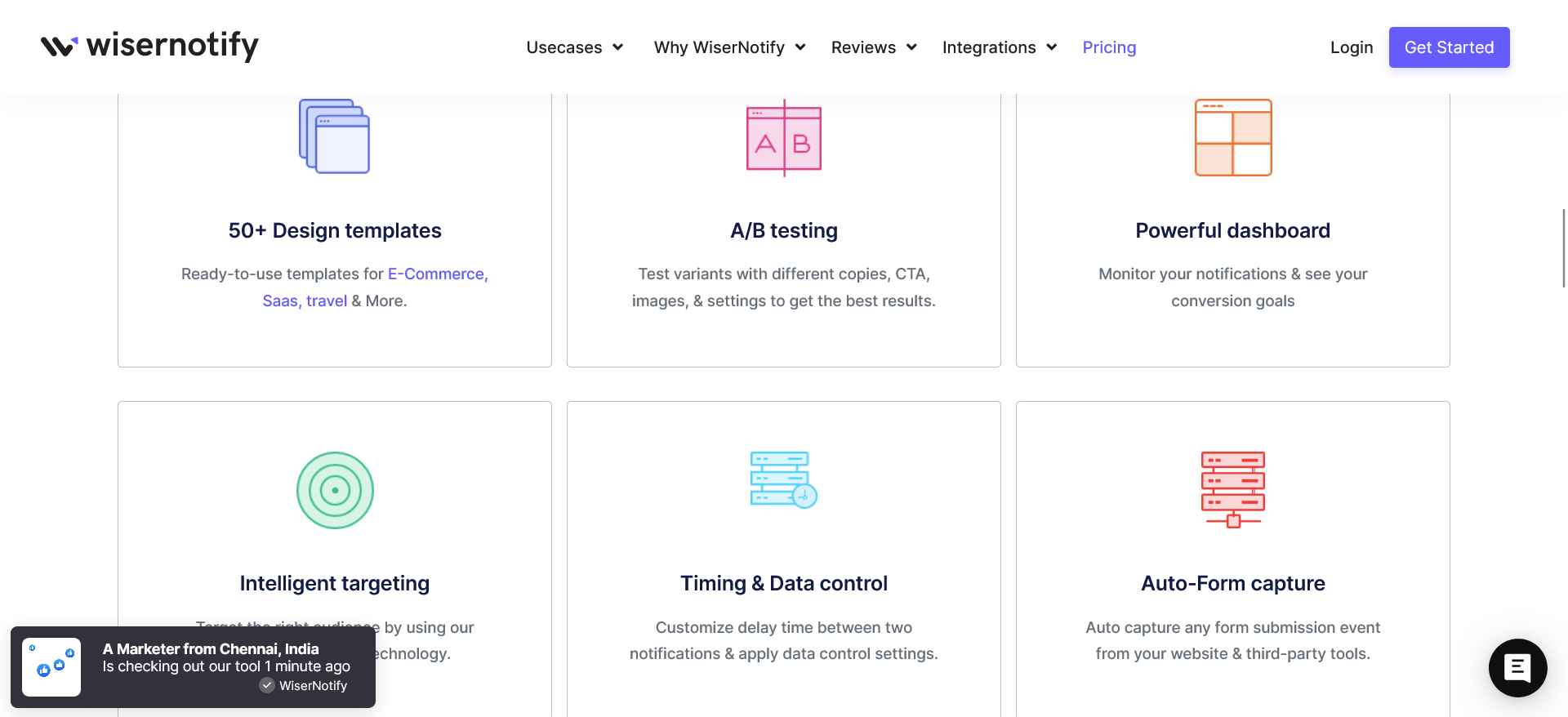
6. Social Media Teasers
Using social media to tease customers with upcoming promotions, events, or product launches creates a sense of excitement among your followers by offering them sneak peeks or behind-the-scenes glimpses of what’s coming.
Learn from of a teaser, where the brand creates a sense of excitement with “Something new is on its way.”
7. Early Bird Discounts
Offer special discounts or incentives for early adopters. Encourage customers to take advantage of the offer before the pricing increases or it’s too late to secure the deal.
Learn from Imagica: As the holiday season approaches, customers are influenced to book their tickets in advance with the Early Bird Offer and save 25%.

8. Influencer marketing
Using influencers can serve as social proof, validating the desirability and building trust around your product or services.
It enhances the exclusivity of your offers and amplifies more reach to your target audiences.
Learn from SUGAR COSMETICS using an influencer marketing campaign to promote products and influence customers to purchase their cosmetic products.
9. Contest and Giveaways
Contests and Giveaways are powerful FOMO marketing tactic that drives more engagement, increase brand awareness, and grow a loyal audience by leveraging FOMO.
Set a limited entry period or offer exclusive prices or giveaways to create a sense of urgency among the website visitors.
Learn from Mageplaza, which offers a chance to spin the wheel after entering the email address and offering them discounts.
10. Limited Editions
Introducing limited edition products or collections with unique features and designs can emphasize the scarcity of the items, creating a sense of urgency and desirability among consumers.
Leverage FOMO among consumers by often releasing limited-edition products in limited supply or in small quantities, motivating customers to buy the products to avoid missing out.
Urgency is a common tactic used in the FOMO technique and is highly effective.
For example, when you visit any shopping site, you see the deals of the day at their best prices. You realize that the watch you wanted to purchase for months is in today’s deal, and only a few stocks are left.
That something creates an urgency to purchase before the stocks end or the deal gets off.
It makes customers decide quickly or grab the opportunity before they miss it. Some common call to action to create urgency include:
- Act Now
- Only X amount of products left
- Hurry before it’s too late
- Limited spots available
Learn from SEIKO Watches, which creates FOMO of scarcity and urgency by using limited edition tactics. They influence the target audience by offering exclusive deals on a Limited supply of exclusive watches.
These are some FOMO marketing strategies that can help you influence target audiences to take immediate action and also drive a personal and meaningful conversation with them.
FOMO Marketing Techniques
Incorporating FOMO can be a powerful way to attract the right audience and increase sales, open rate, engagement, and conversions.
Here are a few FOMO Techniques to incorporate in different platforms and improve its effectiveness –
1. Email FOMO Marketing campaigns
Email marketing is a direct and personalized form of marketing to reach your potential customers; integrating the FOMO technique can increase open rates, engagement, and conversions for your business.
Here are different FOMO techniques for your email marketing campaigns –
- Compelling Subject Lines: Use subject lines that create a sense of urgency or exclusivity and grab their attention. For example, “Only 2 Hours Left! Book Your seats now.”
- Email Content: Make sure once the subscriber opens the email, your content should reinforce the FOMO message by using strong visuals and action-oriented content.
- Personalization: Make sure your content is personalized and tailored to the customer’s feel, behavior, preferences, and sales funnel stage.
2. Social Media FOMO Marketing
FOMO in social media is an incredible tool that encourages your prospects to take your offer faster instead of losing it.
Here are a few FOMO tactics to incorporate in your social media marketing –
- Compelling Captions: Craft captions that evoke a sense of urgency or exclusivity among the audience by using persuasive language that followers won’t want to miss.
- Graphics/ Visuals: Use attention-grabbing visuals to complement your FOMO-inducing captions and emphasize the urgency of the message.
- CTA buttons: Add clear and compelling CTA buttons to your social media posts that prompt followers to take immediate action.
- Social Advertisements: FOMO advertising is a powerful tool in social advertising campaigns to drive engagement, increase conversions, and grow audience. Add urgency, time-sensitive offers, and compelling messages to grab attention.
3. Website Optimization
People don’t tend to miss out when something they see is limited and popular. Using FOMO on various elements of a website to drive engagement, increase website conversions, and encourage actions from visitors.
Here are a few ways to incorporate FOMO in websites –
- Pop-up Notifications – Use pop-up notifications to create scarcity and urgency or to simply build credibility that other visitors are making a purchase or checking out the product.
- Banners – Use a prominent banner on your website homepage, pricing page, and product page to announce limited-time offers, flash sales, or exclusive content that grabs visitors’ attention and conveys the urgency of the offer.
- Announcement Bars – Use announcement bars at the top of the page to highlight missed opportunities or special offers to encourage them to take action.
- Showcase Social Proof – Display testimonials, reviews, or user-generated content throughout your website. Display positive experiences from other customers to increase trust and credibility, making visitors more likely to take action.
17+ Powerful FOMO Marketing Phrases
Okay, let’s be honest. We’ve all fallen prey to a little FOMO marketing at some point. You know, those limited-time deals, those “selling out fast” banners… they get us every time!
But why do these phrases work so darn well?
Let’s break down the psychology behind FOMO and explore the catchiest phrases marketers use to get us to open our wallets.
FOMO phrases work because they tap into our deep-rooted human fears and desires. They trigger our fear of missing out on something valuable or being left behind socially.
They also play on our innate desire for exclusivity and the feeling that we’re getting a special deal.
This combination of scarcity, social proof, and urgency creates a powerful sense of anxiety that can make us act impulsively, often leading to a purchase.
Let’s look at some powerful FOMO marketing phrases:
Urgency & Scarcity
- “Limited time only!”
- “Offer ends in [countdown timer]”
- “Only X left in stock”
- “While supplies last”
- “Don’t miss out on this exclusive deal”
- “Selling out fast!”
Social Proof
- “[Number] people have bought this in the last 24 hours”
- “Just added to cart by [customer’s name] in [location]”
- “Trending right now!”
- “This season’s must-have”
- “Join the [number] of happy customers”
Exclusivity
- “Members-only discount”
- “Early access sale”
- “VIP offer – get it before it goes public”
- “Grab this back-in-stock item before it’s gone again”
Bonus: Adding a Personal Touch
- “We saved one just for you!”
- “You don’t want to miss this…”
- “This deal is too good to pass up”
Remember: Context is key! Choose the phrases that best align with your product, brand voice, and target audience.
FOMO Marketing Tools
Now that you understand how FOMO marketing works, let’s dive into 3 best tools you can use to implement FOMO strategies on different platforms –
1. WiserNotify:
WiserNotify helps you show real-time social proof notifications, displaying recent purchases, live visitor counts, signups on your newsletters, and recent action from other visitors, which helps to build trust and credibility, encouraging users to take action.
Real-time notifications create FOMO and urgency among visitors, increasing conversion rates and more sales for your business.
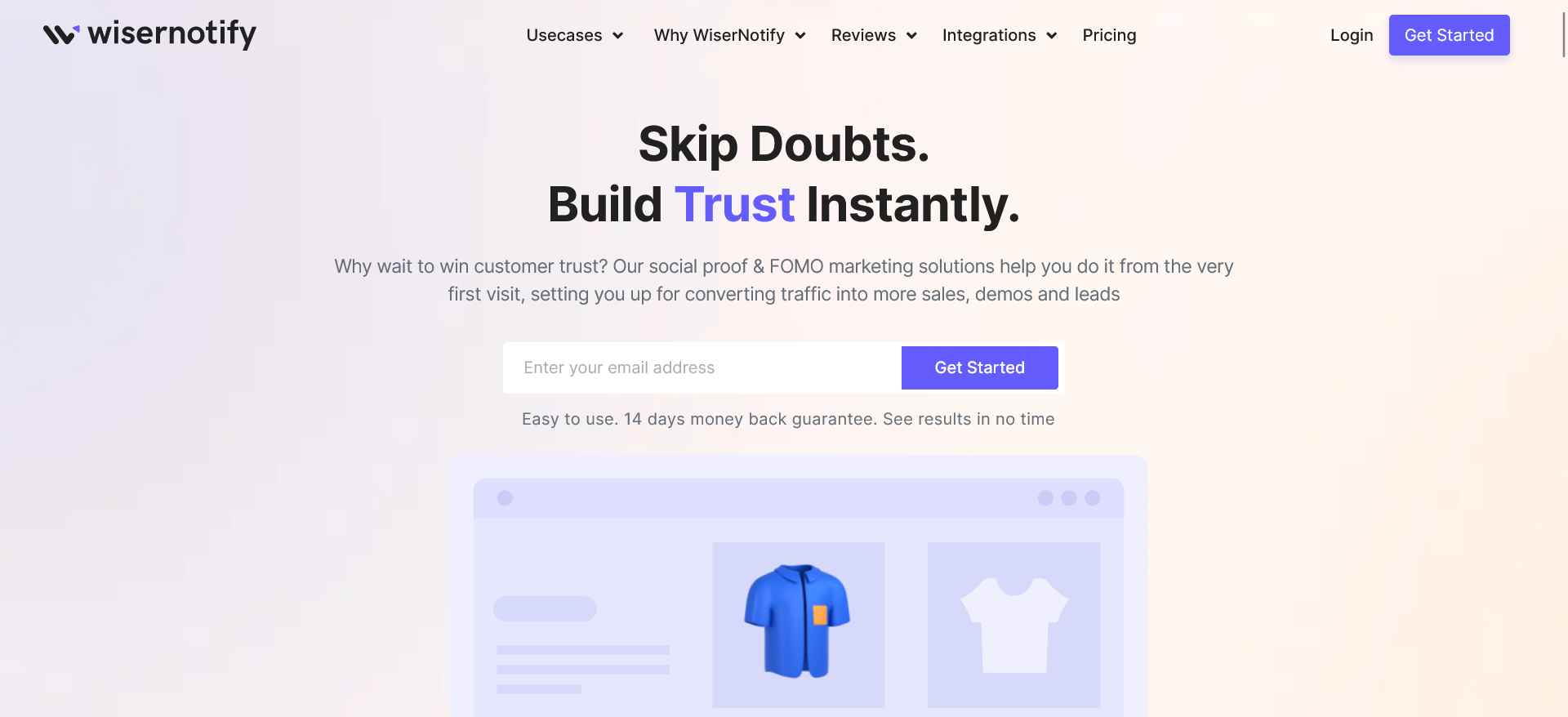
Also Read: 11 Best Social Proof Software Tools (Free and Paid)
2. Prove Source
Prove Source is a social-proof marketing platform that displays real-time notifications of recent customers and real-time notifications of recent customer behaviors on your website to build trust and credibility and encourage conversions.
It leverages social proof and offers customizable design options, making it a user-friendly tool for businesses.
Get: ProveSource Social Proof Alternative
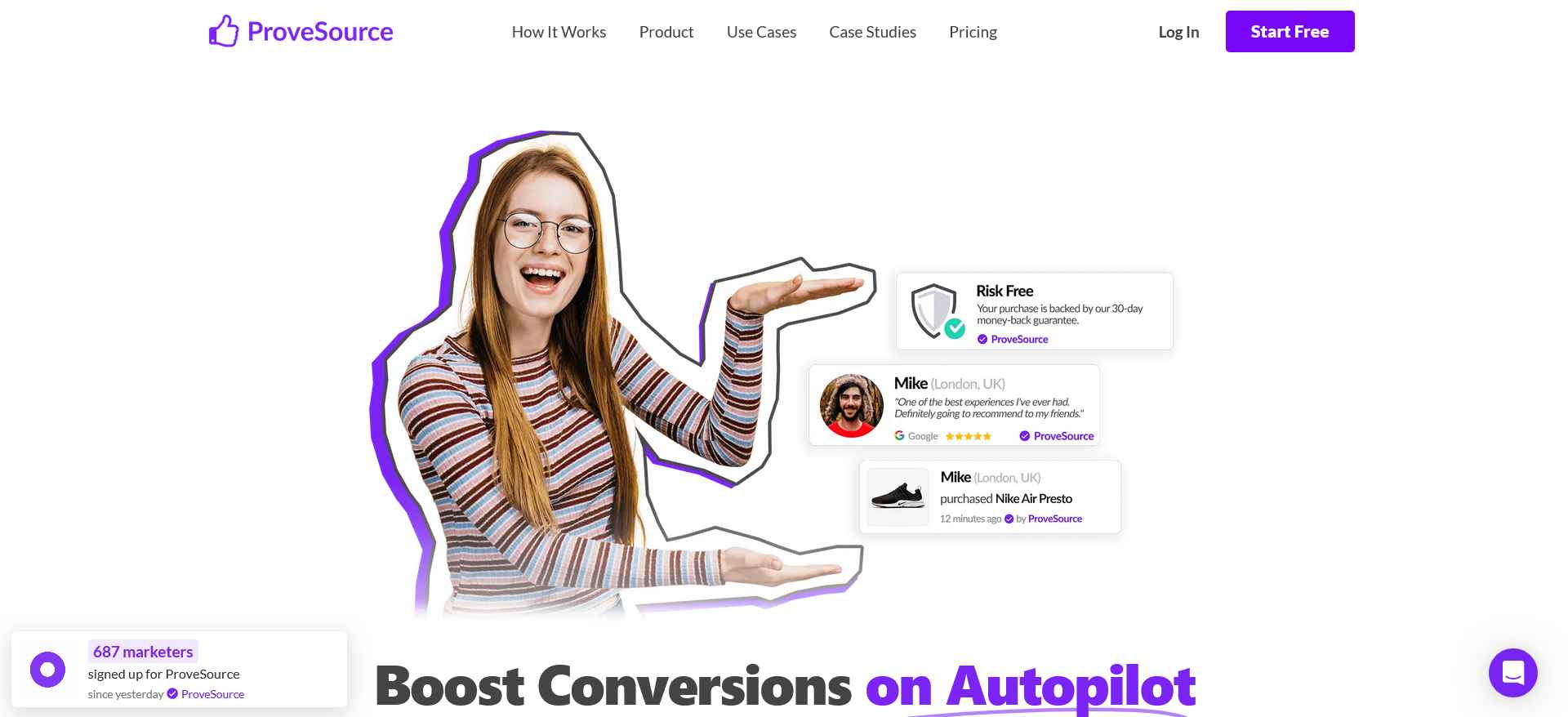
3. FOMO
FOMO is another popular social proof platform that displays visitors’ real-time customer interactions that help to increase sales, trust, and credibility among them.
It helps to create urgency and credibility by displaying recent actions, like purchases, sign-ups, and reviews of other visitors.
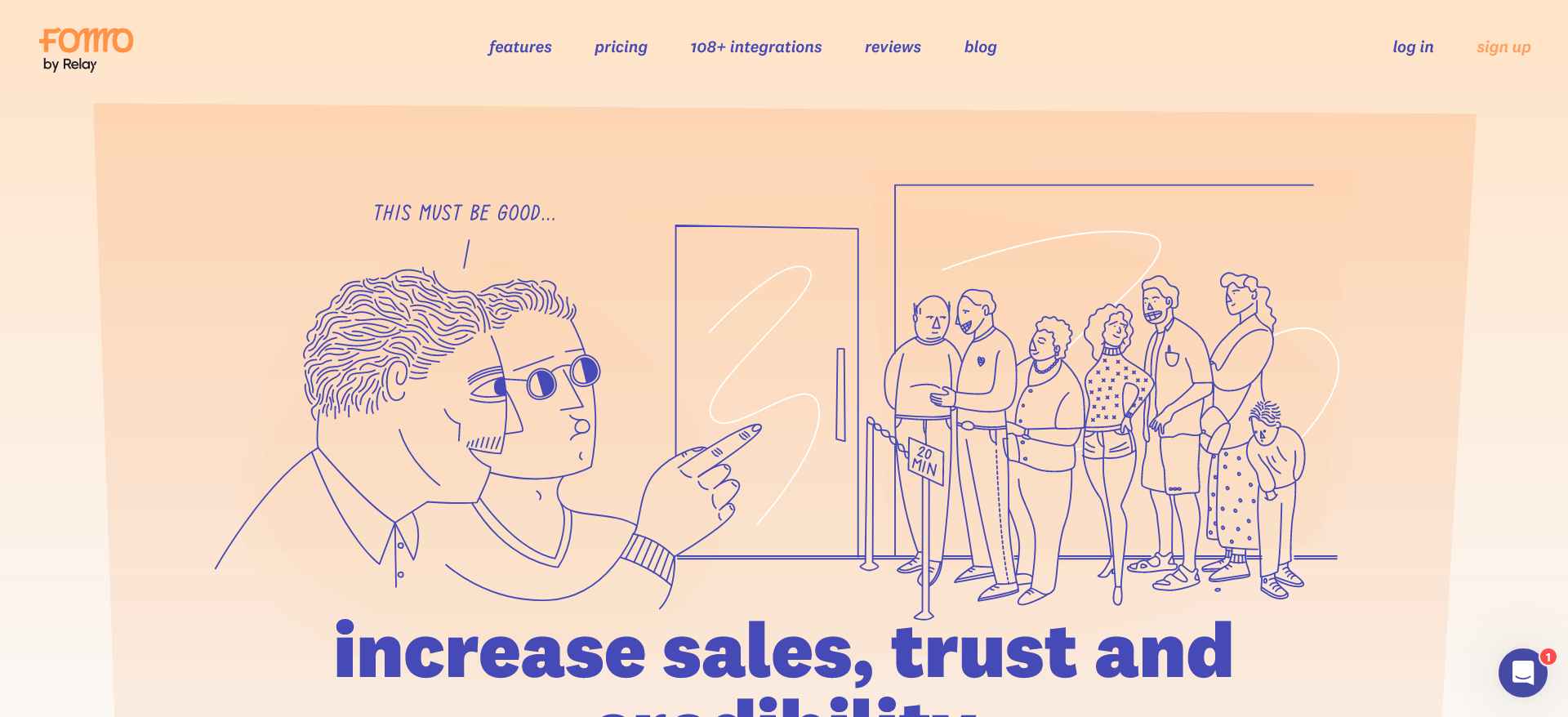
These are a few marketing tools that can help you implement FOMO strategies on your website and boost conversions and business.
Also Reads: 20 Sales Popup Apps Compared to Help You Choose Right for Store
Want to discover more FOMO Tools with detailed reviews, you must check out this post: 10 Best FOMO Tools For More Conversions
FOMO Marketing and Consumer Behavior
FOMO, or Fear of Missing Out, is a powerful psychological phenomenon that can greatly influence consumer behavior.
It is the feeling of anxiety or unease that arises from the belief that others are experiencing something desirable or fun that you are not.
This fear drives people to take action in order to avoid missing out on experiences or opportunities.
FOMO can have a significant impact on consumer behavior in several ways.
Firstly, it can create a sense of urgency and scarcity, leading individuals to make impulsive purchasing decisions.
They may fear that if they don’t act immediately, they will miss out on a limited-time offer or a popular product.
Secondly, FOMO can drive individuals to constantly seek validation and social approval.
Social media platforms amplify this phenomenon by showcasing the experiences and possessions of others, creating a fear of being left out or being seen as less successful.
Lastly, FOMO can also contribute to a sense of dissatisfaction or regret.
When individuals see others enjoying experiences or possessions that they do not have, they may feel a sense of envy or disappointment, leading to a desire to acquire those experiences or possessions for themselves.
Measuring the Success of FOMO Marketing Campaigns
Measuring the success of the Fomo Marketing Campaign can help you determine when and where to make the necessary adjustments to improve the effectiveness of future campaigns.
Here are some of the metrics or Key Performance Indicators for FOMO marketing –
- Conversion Rate – The percentage of visitors who have completed the desired action, such as signing up for a newsletter, making a purchase, or downloading a resource. Use different tools like Google Analytics, Facebook Pixel, or others to track your conversion rate.
- Click Through Rate (CTR) – The percentage of people who click on the CTA or links in your FOMO marketing materials. A higher CTR indicates that your compelling message is driving engagement.
- Engagement Metrics – Monitor engagement metrics such as likes, comments, shares, and retweets on your social media posts or other marketing platforms related to your FOMO campaigns.
- Bounce Rate – Track the percentage of audiences who leave the website or platform without taking any further action after encountering the FOMO marketing campaign.
- Customer Retention and Lifetime Value – Evaluate customer retention and lifetime value of FOMO-driven customers. A successful FOMO strategy can attract new customers, foster long-term relationships, and increase customer loyalty.
By tracking these KPIs, you can measure the effectiveness of your FOMO campaigns and optimize the strategies to drive better results.
Conclusion
FOMO marketing strategy can be a powerful tool to drive engagement and conversions. If you trigger FOMO by creating a sense of urgency and exclusivity and highlighting scarcity among consumers, they can act fast to grab the opportunity.
Your marketing strategy should instill the feeling of missing out by giving away discounts, exclusive offers, social proof, or other deals.
There are several ways to use FOMO in marketing on your home pages, landing pages, product pages, social media posts, or other marketing platforms to connect with consumers.
FOMO triggers on how customers feel and stirs up the competitive spirit among the customers to boost your marketing efforts.
Successful brands like Nike and Adidas leverage FOMO to create irresistible offers that trigger emotions and convert customers.
However, make sure not to overuse FOMO marketing, as this can decrease the effectiveness of your marketing efforts.
